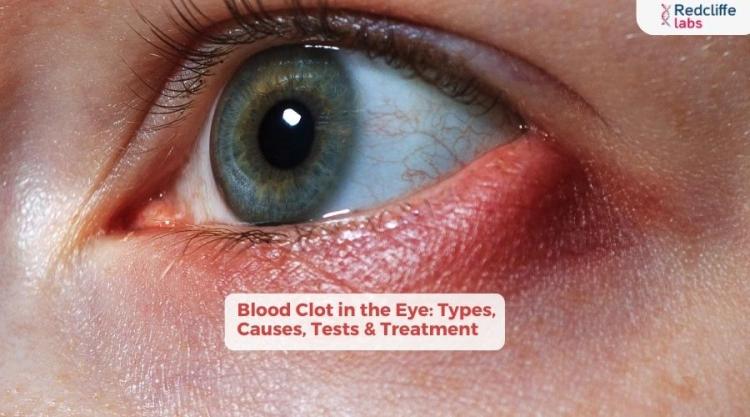Diabetes and the Increasing Risk of Heart Disease - Find The Connection

Medically Reviewed By
Dr Divya Rohra
Written By Meenakshi
on Sep 9, 2023
Last Edit Made By Meenakshi
on Jan 9, 2025

Today's fast-paced lifestyles and easy access to indulgent foods have significantly surged the prevalence of chronic diseases. Among these, diabetes and heart disease are major diseases that often go hand in hand. Diabetes and heart disease are both interconnected chronic conditions and have a critical impact on global health. According to the CDC, individuals with diabetes have twice the risk of heart disease or stroke compared to healthy individuals. Finding the intricate relationship between these two conditions necessitates a deeper understanding of effective prevention & management. So, let's delve deeper to discover more.
Unraveling Diabetes and Heart Disease:
Diabetes:
Diabetes is a disease that occurs when body glucose is too high, either due to insufficient insulin production or the body's inability to use insulin effectively. Diabetes is further categorized into three main types, namely:
- Type 1 Diabetes occurs when your body doesn't produce sufficient insulin. Type 1 Diabetes or Juvenile Diabetes is less common than type 2, and only 5-10% of people with diabetes have this type. According to studies, your genes or autoimmune reaction is when your body's immune system mistakenly attacks the insulin-producing beta cells of the pancreas, disrupting its insulin-making function. People with it may require insulin injections as suggested by healthcare practitioners and need to follow appropriate treatment courses to keep their blood sugar levels balanced, as a permanent cure is not available.
- Type 2 Diabetes: It is the most common form, and approx 90% of all diabetes cases are Type 2 diabetes. A combination of habits, like a sedentary lifestyle, genetic factors, chronic conditions, etc., contributes to it. Left untreated, it increases the risk of developing chronic illnesses like heart disease, kidney disease, and stroke. However, it will be easier to manage with little tweaks in lifestyle, insulin, and other preventive measures.
- Gestational Diabetes: Lastly, the least common type is gestational diabetes, which occurs during pregnancy when the body cannot produce enough insulin to meet the body's increased needs. In most cases, it resolves after childbirth but raises one's likelihood of developing Type 2 diabetes later in life.
Heart Disease:
Cardiovascular Disease (CVD) or Heart Disease is a range of conditions affecting the heart & blood vessels. According to WHO, heart disease is the major cause of death, taking approximately 17.9 million lives yearly. Some of the common types include the following:
- Coronary Heart Disease: Being the most common heart disease, it occurs due to blocked blood vessels & heart doesn’t get proper blood supply.
- Angina: This condition won’t let your heart get enough oxygen during strenuous or under stress. Restricted blood supply to the heart due to narrowed arteries is the major cause of it.
- Heart Attack: Another common heart disease that tops the list is a heart attack due to limited or blocked blood supply to the heart muscles.
- Heart Failure: When the heart pumping function is disturbed, it doesn't let your heart get enough blood or oxygen, leading to heart failure. Depending on your symptoms, your healthcare practitioner may suggest the NT-Pro BNP test to measure N-terminal Pro-B Type Natriuretic Peptide (NT-Pro BNP) and assess overall heart health. Elevated Nt-Pro BNP usually indicates heart failure or other cardiovascular conditions.
- Arrhythmia: It causes the heart to beat too slowly. It is further classified into different forms, some with symptoms or warning signs, and others can be fatal.
- Structural Heart Disease: It refers to the conditions causing heart structure abnormalities, including valves, walls, muscles, or blood vessels.
There are several other types, and each condition requires proper attention to avoid complications. Doctors often suggest the NT-Pro BNP test or other heart-related tests if required to evaluate heart health and its associated difficulties. Now, the question is, as both are different conditions, what is the thread that connects them? Let's find the points below.
Diabetes and Heart Disease – Unveiling The Unbreakable Connection
The link between heart disease and diabetes is multifaced. Elevated blood sugar levels harm blood vessels and nerves controlling the heart, increasing the risk of cardiovascular disease. Check out the common factors that contribute to this relationship at large:
- Shared Risk Factors: Both these chronic conditions, diabetes and heart disease, share common risk characteristics, such as:
- Obesity
- High Blood Pressure
- High Cholesterol
- Sedentary Lifestyle
Summary: According to the National Institute Of Health, a sedentary lifestyle increases all causes of mortality and contributes to a high risk of Type-2 diabetes and cardiovascular disease.
Pro Tip: Breaking the cycle of a sedentary lifestyle is the key that can mitigate your risk of developing chronic conditions and live a healthy life. It positively improves your health and helps in the prevention of these diseases.
- Impact on Blood Vessels: Elevated blood sugar levels can drastically damage blood vessels over time. It can cause:
- Damage to small and large blood vessels
- Increased vulnerability to Atherosclerosis
- Atherosclerosis is further a key contributor to cardiovascular disease (CVDs).
Summary: Diabetes can influence blood vessels, leading to significant damage and potential heart risk. Get it checked at the earliest for better management.
Pro Tip: Managing blood sugar levels, following prescribed medicines, and preventive measures helps manage diabetes better and minimize your risk of developing certain complications.
- Inflammation: Diabetes is often linked with chronic inflammation, leading to Atherosclerosis and other cardiovascular complications. It can:
- Worsen the risk of cardiovascular complications
- Diabetes-related inflammation can exacerbate cardiovascular inflammation
Summary: While inflammation is a significant factor linking diabetes and heart disease, it's not solely responsible for the damage.
Pro Tip: Some medications and lifestyle interventions can be a potential approach for managing diabetes and reducing your risk of heart disease. Timely consultation with a healthcare practitioner is advised to get control over it.
- Impact on Heart Function: Elevated blood sugar levels influence the structure and function of the heart, leading to:
- Specific heart damage, called diabetic cardiomyopathy
- Compromise the heart's normal ability to contract and pump blood
- Increases the risk of heart failure
Summary: In short, it increases one's risk of severe cardiac problems and must be managed quickly.
Pro Tip: Personalizing lifestyle and dietary habits are key contributors to improving heart health and minimizing your risks of complications.
- Microvascular Complications: Diabetes also causes significant damage to microvasculature or small blood vessels of different organs, contributing to:
- Impaired blood flow to heart muscles
- Lead to angina
- Limit oxygen supply to the heart
- Cause heart muscle damage
Summary: By causing a significant impact on the heart, it increases the risks of heart disease and related complications that need immediate attention.
Pro Tip: Managing high blood sugar levels and switching to a heart-friendly lifestyle is the key to mitigating the risk of microvascular complications in diabetes and heart disease.
Since the connection between both conditions is strong, take proactive steps to manage their diabetes better and reduce their risk of cardiovascular disease.
Preventive Measures To Manage Diabetes And Cardiovascular Health:
- Blood Sugar Control: Controlling blood sugar is the foremost step for a healthy heart and managing diabetes.
How to do it:
- Balance carbohydrates, fats & protein in the diet
- Keep track of sugar levels as suggested by a healthcare provider
- Take prescribed medications as instructed
A little effort can go a long way. So, start today!
- Blood Pressure Control: Another tip that can help manage diabetes better and reduce your risk of cardiovascular complications is controlling the blood pressure, as it otherwise influences health, leading to severity.
How to do it:
- Follow the DASH diet
- Limit your sodium intake
- Practice stress management
- Exercise regularly
Healthy BP levels are essential for the healthy beating of your heart. So, take care of it.
- Cholesterol Management: Individuals with cholesterol and diabetes are at high risk of heart disease or stroke. So, getting control over their levels for better health is good.
How to do it:
- Consume foods high in soluble fiber and healthy fats
- Add omega-3 fatty acids to your diet
- Limit the intake of saturated or trans fat
Know your cholesterol numbers for a healthy heart. Know & act now!
- Adopt A Healthy Lifestyle: It is advisable to switch to a healthy lifestyle that can keep your blood sugar levels in balance and mitigate your risk for cardiovascular disease.
How to do it:
- Choose whole foods over processed foods
- Incorporate physical activity into your routine
- Maintain a healthy body weight
Don't let a sedentary lifestyle take a toll on your health; break it thrive well.
- Choose Routine Checkup: Individuals with diabetes should consider routine health checkups to track blood sugar levels and manage heart health better.
How to do it:
- Book a Full Body Checkup, Heart Healthy Package, NT-Pro BNP test, or Diabetes Screening as suggested by your healthcare practitioner to track and manage your health better
- Follow the tailor-made recommendations of your doctors to avoid complications
- Routine monitoring can help with regular conditions
Getting tested routinely can significantly improve your health and actively manage diabetes while reducing your risk of cardiovascular complications.
Also Read: Learn more about Diabetes Symptoms, Types, Diagnosis, and Treatment Options through this blog:
Remember, these tips can support a healthy you; however, the results and overall impact can vary for every individual. Therefore, it is essential to consider routine health screening for better health insights and personalized guidance for improving health and minimizing the risk of potential health complications.
Manage Heart-Related Conditions Better With NT-Pro BNP Test
When it comes to heart health, delaying the testing is not an option, especially if you have diabetes. If you have diabetes, An NT-Pro BNP test is a preventive checkup to measure the specific protein in the blood released by the heart in response to stress or pressure. Getting tested timely helps diagnose and manage cardiac-related issues, particularly heart failure. Besides evaluating the risks, the NT-Pro BNP test provides insight into the severity of heart failure, monitors progress, guides treatment, and manages health better. Remember, a healthy heart is your responsibility, so be proactive, make healthier choices, and consider booking an NT-Pro BNP Test to monitor your ticker.
Conclusion:
The link between diabetes and heart disease is complex, and managing diabetes effectively and adopting a heart-friendly lifestyle are the key strategies to cope better.
Redcliffe Labs is your trusted diagnostic partner for all your routine to specialized health test needs. Whether you want to book an NT-Pro BNP test, Diabetes Screening Package, Healthy Heart Package, or Full Body Checkup at home, we are the name to recall. So, don't let complications take a toll on your health. Get tested with us today.



